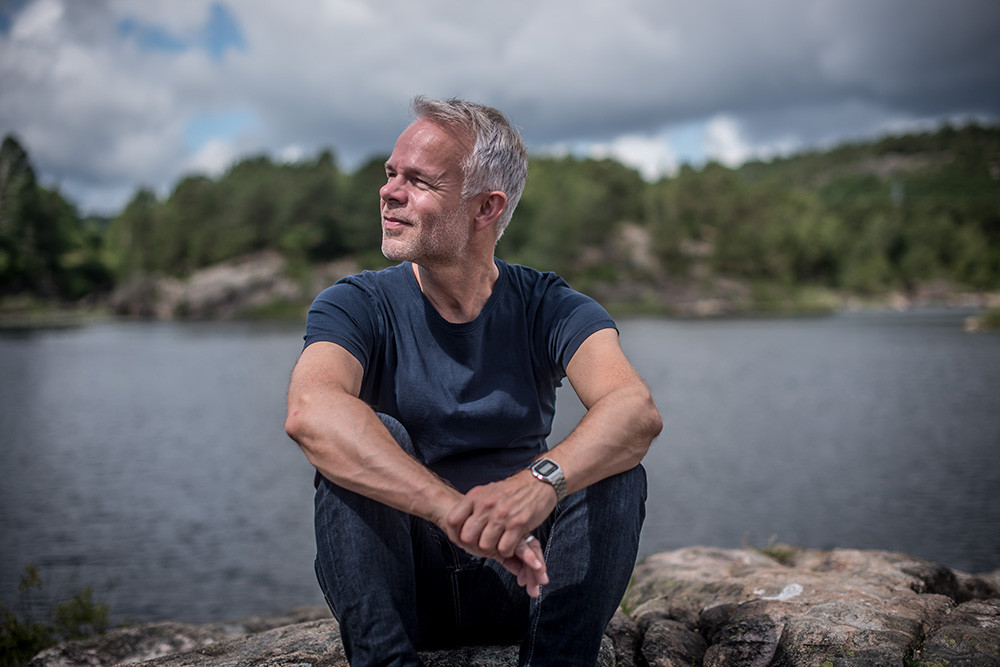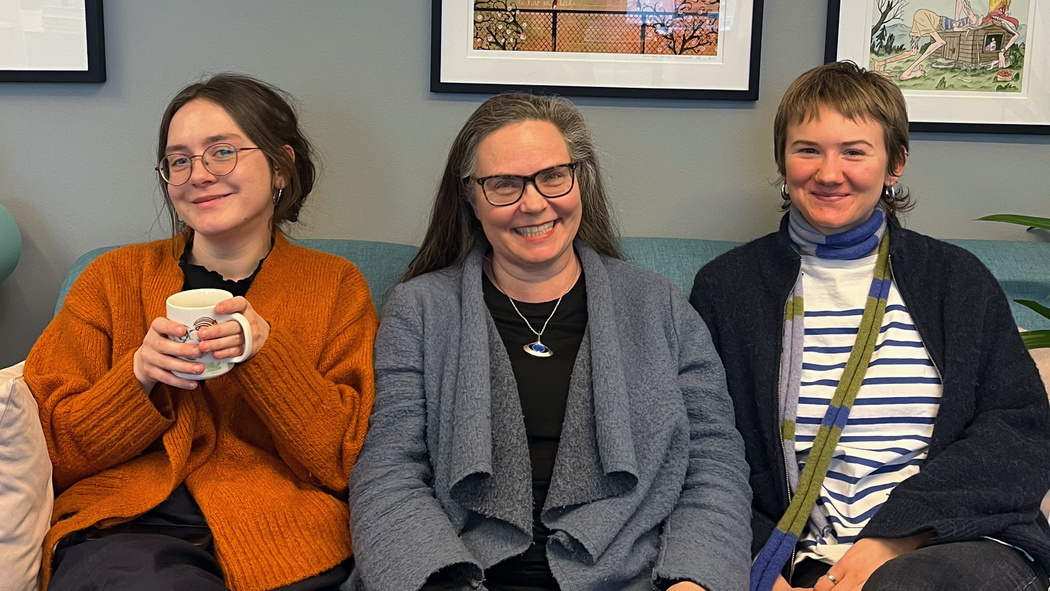Tore Renberg - Selected Title Author
Tore Renberg tries to go back in time to grasp why humans do as they do. – Is this possible? I mean, travel all the way back to the 17th century? No. Or yes! The magic of literature, to speak in grand words, exists. If it didn’t, I would have never become a reader in the first place, and consequently, never an author, he says.

The Lung Float Test is one of NORLA’s Selected Titles for autumn 2023. Here, author Tore Renberg speaks about the book, who it is written for, what inspired him to write it and where and when he works best.
What is your book about?
The Lung Float Test is a novel based on a real criminal case from the late 17th century: a young woman, Anna Voigt, was accused of having killed her newborn infant. This was not uncommon in early modern times. Many women found themselves in this situation – whether out of necessity, shame, or fear of the law – and they faced inquisitions, imprisonment, torture, and even the death penalty.
What makes Anna’s case exceptional is that it doesn’t follow the typical path of swift prosecution and sentencing; her case takes a different turn entirely and lasts for an astonishing five and a half years. The young daughter of a landowner gets a courageous defense attorney, the young Christian Thomasius of Leipzig, who presents an experimental medical test to the court. He claims that this test can prove whether the child was deceased within the mother’s womb or if it had drawn breath outside it. In other words: the test could prove whether or not the child was killed.
This is Dr. Johannes Schreyer’s “lung float test”, which is considered to be the beginning of modern forensic medicine. Christian Thomasius is regarded as the father of the German Enlightenment.
In a time when criminal legislation was steeped in the retributive thinking of the Law of Moses – an eye for an eye, a tooth for a tooth – this test emerges as one of the 17th century’s many scientific harbingers of a new era, marking the beginning of the Western world as we know it. What happens? The motive for revenge is challenged. The dominance of religion in legal practice is challenged. Customs and traditions are challenged. Morality is challenged. Authority is challenged. Scientific evidence starts to take the forefront.
My novel is set in one of the most dramatic periods of upheaval in history. It depicts powerful forces at play on both sides, both those defending their positions and mindsets and those fighting for a new world. It depicts a young, pock-cheeked girl wondering how long she has to live. It portrays a father in turmoil, consumed by a quest for vengeance. It depicts a bookish doctor who dared to conduct a controversial medical test. It depicts a self-assured Leipzig lawyer with reckless courage and unreserved spending. It depicts an infuriated amtmann, a dutiful executioner, and an executioner’s wife who whips up creams made of animal hearts and human body parts. It depicts a pastor witnessing godlessness flooding into his beloved Leipzig. It depicts the young boys in the Thomaner choir singing comforting songs for the condemned. It depicts what it’s like to be imprisoned for several years and ultimately disappear into oneself. It depicts the torture of a young girl. And it depicts hope for a more just world.
The novel aims to look at the era through the people of the era. It doesn’t believe we’re walking on this earth alone; it believes there’s always someone beside you and that we all influence each other, whether we’re aware of it or not. It believes that, as human beings, we are always immersed in our own time, only half aware of what our own time actually consists of. In the same way, we are only half aware of the past that shapes us. It doesn’t believe we’re particularly good at seeing ourselves objectively, but it hopes that literature can do that for us. I think it wants to ask: Why do we humans act as we do? And what do we look like?
Is it possible to achieve this? I mean – to travel all the way back to the 17th century? No. Or, yes! The magic of literature, to put it grandly, does indeed exist. If it didn’t, I never would have become a reader, and as such, never an author, either. I believe the magic of literature lies where I’m sitting in my small town, Stavanger, at the age of 51, in its ability to transport you to any place at all – through particular language, through knowledge, through empathy. Of course, I don’t know if I’ve accomplished this. All I know is that I’ve tried. I worked on this material for five and a half years, read thousands of pages, listened to numerous experts, and traveled to Germany many times, all in an attempt to get as deep into this society as possible. Into these people, because it is only through them that this story can be made visible. Not from here. Not from 2023. I hope I’ve been able to delve so deep that I can feel the wig between my fingers when Christian Thomasius looks at himself in the mirror and gets dressed for his day as a lawyer. Deep enough that I can feel the weight of the executioner’s sword in my hands when he raises it over the head of the condemned. Deep enough that I can hear Anna Voigt’s voice when she says she misses her child.
I wasn’t thinking about our era when I was writing this. On the contrary, I’ve tried to ignore myself and my own era, our gestures and mannerisms, our language, and our thinking, to be able to embark on an empathetic journey when knowledge of the past had become deeply ingrained inside me. When I’d become so comfortable with the past that I could see and hear it, so comfortable that I could let the characters roam freely within it. Eventually, however, I saw that threads of connection were emerging, threads that ran from the 17th century and stretched into our time. Many of them, unfortunately, were spun in blood – blood that Christian Thomasius, Johannes Schreyer, and the other dreamers of the Enlightenment would be disheartened to hear is still visible today.
What inspired you to write this book?
In January 2018, while working on another project, I stumbled upon this term: the lung float test. And this: that it is often considered to be the beginning of modern forensic medicine. And this: that the first time it was presented as evidence in an infant murder case, it saved the life of a 15-year-old girl. These three components sent shivers down my spine. Okay, I thought, this sounds like a novel. Am I able to write it?
Who is this book for?
I never think about that. I just write. I’m never on the same side as anyone except those I’m writing about. And, of course, I hope it turns out to be worth reading.
Where and/or when do you work best?
I write in my office, located in the heart of Stavanger, and I do my best work from early in the morning until my mind and body call it quits later in the day. For me, being a writer is an all-encompassing profession. It eats and drinks me, and I eat and drink it in return. I’m on the job wherever I am, even in the depths of sleep. I often think this can’t be good for me, but at the same time, I love my profession, so there’s nothing to be done about that. I can’t do anything else and I don’t want to do anything else. The dream of one day writing a good sentence.
Read more
See full presentation of the book here
See all NORLA’s Selected Titles for autumn 2023 here


